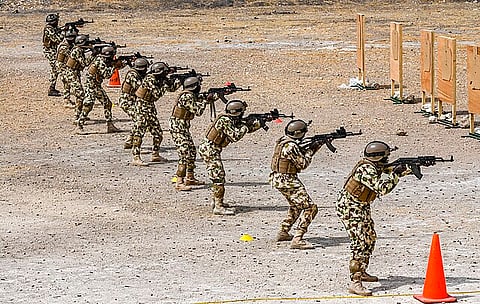

Borno State Governor Babagana Zulum has issued a stark warning over the escalating violence in northeastern Nigeria, citing a surge in attacks, kidnappings, and the overrunning of military outposts by Boko Haram and Islamic State West Africa Province (ISWAP) militants. Speaking during a security briefing in Maiduguri on Tuesday, Zulum said the current wave of insurgent violence shows that "Borno State is losing ground."
The renewed Boko Haram attacks and kidnappings in many communities almost on a daily basis without confrontation signal that Borno State is losing control
Babagana Zulum
New Tactics and Regional Instability
Military sources report that Boko Haram and ISWAP have begun using drones for surveillance and launching hit-and-run operations, posing fresh challenges for troops on the ground. These evolving tactics have allowed militants to evade large-scale confrontations and target both security personnel and civilians with greater precision.
Further complicating the security situation is Niger’s recent withdrawal from the Multinational Joint Task Force (MNJTF)—a regional coalition that also includes Nigeria, Chad, and Cameroon. Formed to coordinate counterinsurgency efforts in the Lake Chad Basin, the MNJTF has been central to fighting militant groups. Niger’s exit has undermined coordination and created dangerous security vacuums, raising fears of renewed insurgent expansion.
The crisis in Borno is part of a broader security breakdown across Nigeria:
In the northwest, kidnappings for ransom by armed criminal gangs are on the rise.
In central Nigeria, deadly clashes between farmers and herders over land and resources have intensified.
Governor Zulum has repeatedly urged federal authorities to invest in sophisticated surveillance technologies, bolster human intelligence, and implement coordinated security responses. Despite his warnings, the military has not issued a formal response or provided a clear strategy for addressing the deteriorating situation.
Both Boko Haram and ISWAP are designated terrorist organizations by the United Nations, United States, European Union, and the African Union. They have been responsible for tens of thousands of deaths and millions of displacements since Boko Haram’s insurgency began in 2009. ISWAP emerged in 2016 after splitting from Boko Haram and has since gained territory and funding by aligning more closely with global jihadist networks.
Zulum’s warnings underscore a turning point in Nigeria’s decade-long fight against Islamist insurgents. With regional coordination weakening, militant tactics evolving, and internal instability spreading, the Nigerian state faces a critical test of its counterterrorism strategy.